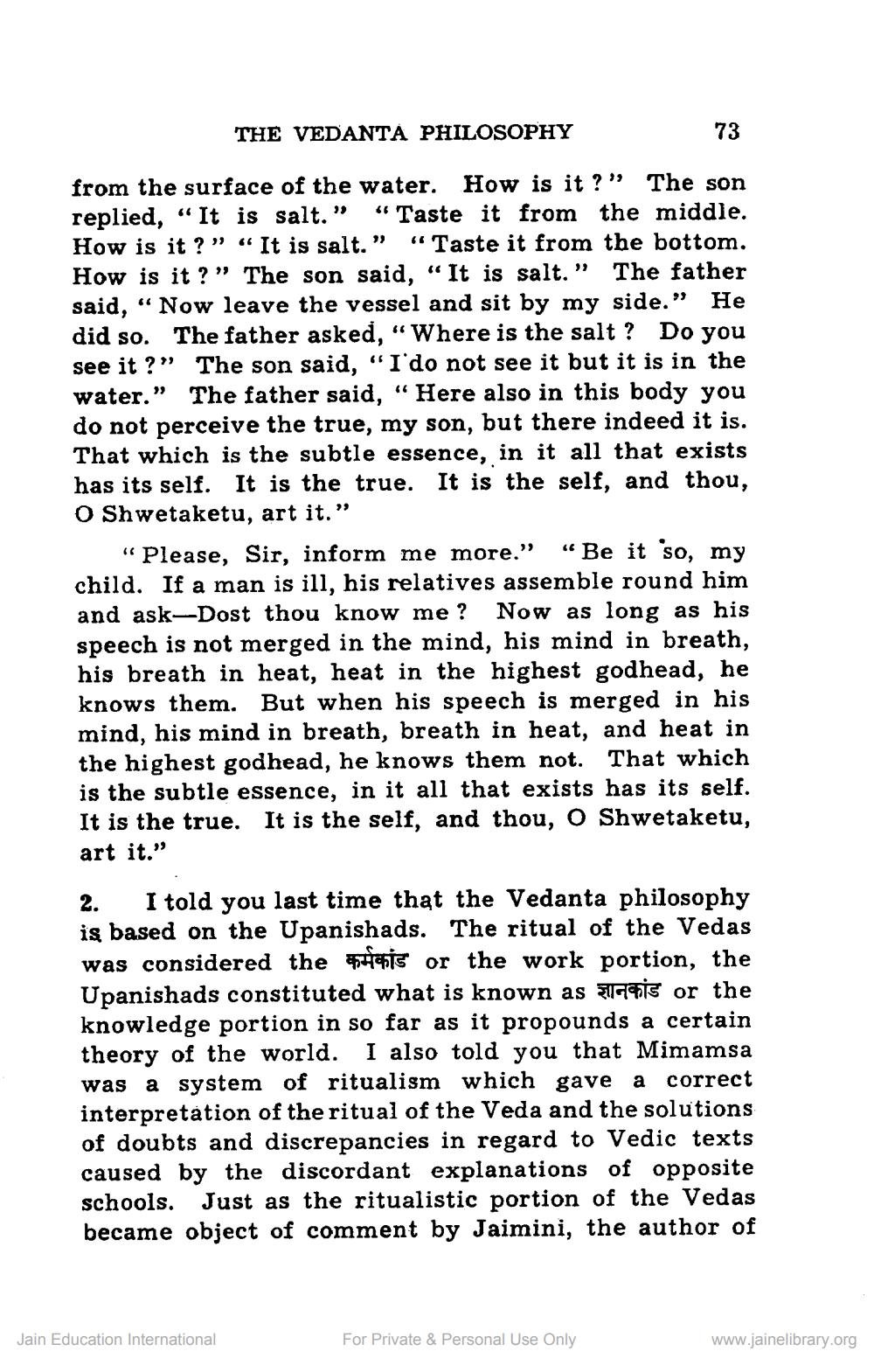________________
THE VEDANTA PHILOSOPHY
73
from the surface of the water. How is it?" The son replied, “It is salt.” “Taste it from the middle. How is it?” “It is salt.” “Taste it from the bottom. How is it?” The son said, “It is salt." The father said, “Now leave the vessel and sit by my side." He did so. The father asked, "Where is the salt? Do you see it?” The son said, “I'do not see it but it is in the water.” The father said, “Here also in this body you do not perceive the true, my son, but there indeed it is. That which is the subtle essence, in it all that exists has its self. It is the true. It is the self, and thou, O Shwetaketu, art it.”
"Please, Sir, inform me more.” “Be it 'so, my child. If a man is ill, his relatives assemble round him and ask-Dost thou know me? Now as long as his speech is not merged in the mind, his mind in breath, his breath in heat, heat in the highest godhead, he knows them. But when his speech is merged in his mind, his mind in breath, breath in heat, and heat in the highest godhead, he knows them not. That which is the subtle essence, in it all that exists has its self. It is the true. It is the self, and thou, O Shwetaketu, art it."
2. I told you last time that the Vedanta philosophy is based on the Upanishads. The ritual of the Vedas was considered the chis or the work portion, the Upanishads constituted what is known as 516915 or the knowledge portion in so far as it propounds a certain theory of the world. I also told you that Mimamsa was a system of ritualism which gave a correct interpretation of the ritual of the Veda and the solutions of doubts and discrepancies in regard to Vedic texts caused by the discordant explanations of opposite schools. Just as the ritualistic portion of the Vedas became object of comment by Jaimini, the author of
Jain Education International
For Private & Personal Use Only
www.jainelibrary.org




